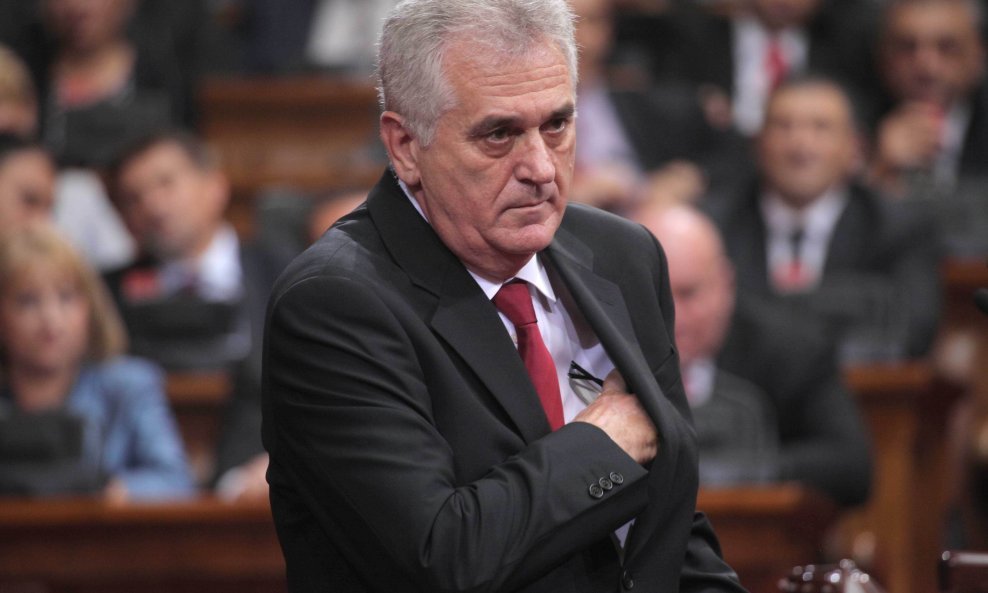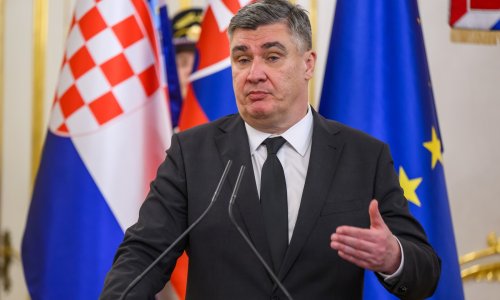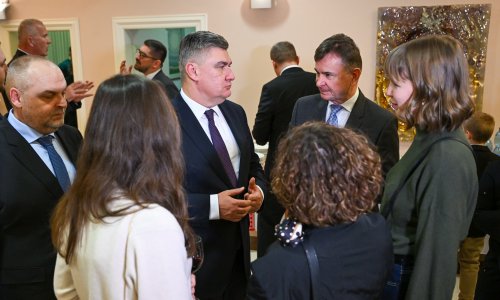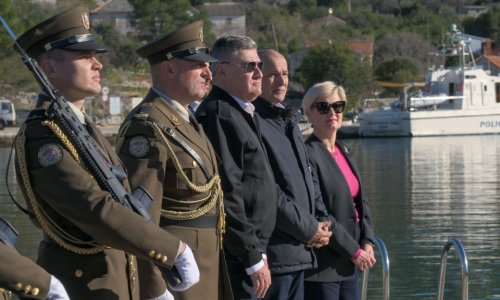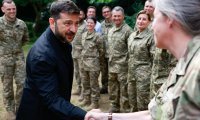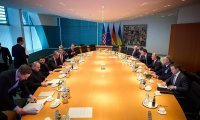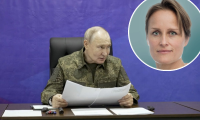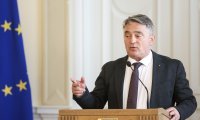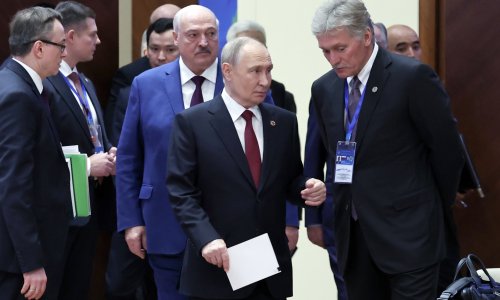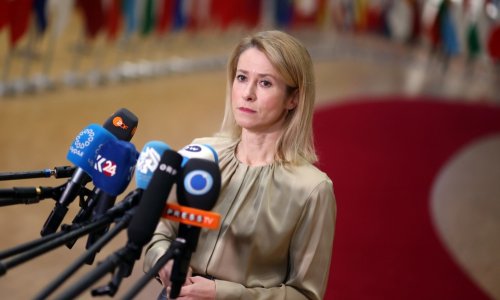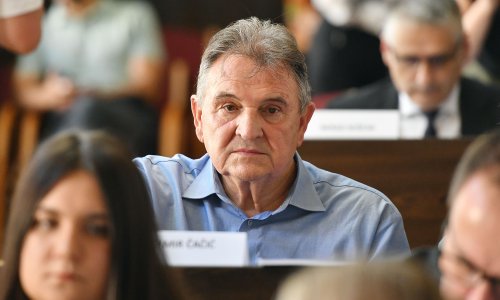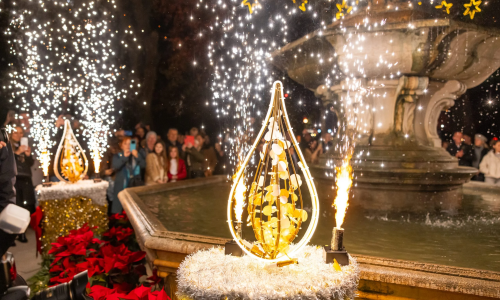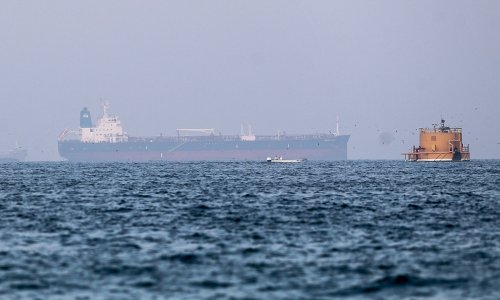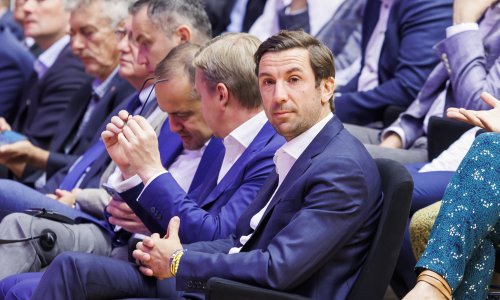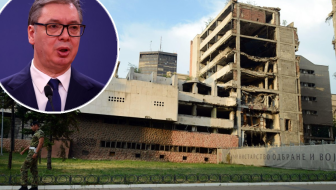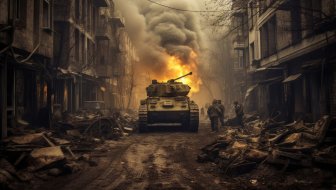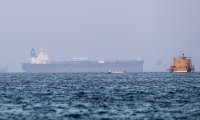Serbian President Tomislav Nikolic said on Friday that neither he nor Serbia were to blame for the tense relations with Croatia and that he was willing to meet with Croatian President Ivo Josipovic when the other side was ready too.
Speaking to Beta news agency, Nikolic said he had already spoken with Josipovic and Croatian Prime Minister Zoran Milanovic, as well as with the Bosniak member of the Bosnian Presidency, Bakir Izetbegovic, adding that Serbia was not responsible for the deterioration of relations with Croatia and Bosnia and Herzegovina (BiH).
Nikolic said he met Josipovic in London at a reception given by the Queen and that they talked for an hour. He said he met Milanovic in Rio de Janeiro and they talked for half an hour and that he talked for a half hour with Izetbegovic in New York, saying those were friendly talks.
Hina news agency learned from Josipovic's office that the two presidents met in London but they did not discuss political topics, let alone talk for an hour, but only formally exchanged greetings. The Croatian government said Milanovic did not visit Rio de Janeiro.
"I don't know the real problem in relations with Croatia and BiH," Nikolic told Beta, adding that as soon as he was elected president, he was met with hostility not only in Serbia but the region as well.
"It was believed that, firstly, the man they cooperated well with had left and a man was coming with whom one could supposedly not cooperate... Secondly, some of my statements were twisted in order to be misinterpreted and to justify the fact that we don't see each other," he was quoted as saying.
"If I said that I recognise Croatia within its borders, how can someone accuse me of laying claim to Croatian territory? If I said that I accept Sarajevo as the capital of BiH (and) the Dayton (peace) agreement, how can someone accuse me of toppling this state?"
Nikolic went on to say that when the Hague tribunal acquitted Croatian generals Ante Gotovina and Mladen Markac, he responded by comparing Serbia's and Croatia's relationship towards crime.
"We Serbs, who have been accused and convicted the most, didn't wait for the Hague tribunal's decision after the crime in Srebrenica but immediately passed the Serbian Assembly's Declaration condemning the crime against Bosniaks. The Serbian authorities arrested Ratko Mladic and extradited him to The Hague. What did Croatia do for (Operation) Storm? It waited for the Hague tribunal's acquittal to celebrate the fact that no one was convicted."
Nikolic reiterated that the 1995 Operation Storm was a crime in which 200,000 people were expelled and 2,000 killed.
"The Croatian president can't say, Now it's been proven that it was a military operation, and be mad at me for the fact that we don't see each other. Something is not right here."
Nikolic said Serbia "has no problems with Montenegro" and that their relations must be better so that Serbs in Montenegro could live better.
He said Serbia could help with the Macedonian-Greek dispute over Macedonia's name because of which Greece is blocking Skopje's path to the EU.
"That dispute is grave and I feel it can be solved if both realise that stubborn insistence won't get them anywhere... I told both sides that I was at their disposal, but if I'm asked to propose a solution, it won't be acceptable only to one side, maybe it won't be to either, but the Balkans must no longer be a place of conflict. We are standing still, while others have moved far ahead."
Nikolic announced a "historic reconciliation" and mutual apologies between Serbia and Hungary for crimes committed in World War II. "That can completely calm down Serbian-Hungarian relations. If only Serbs could calm down among themselves, everything would be fine."



